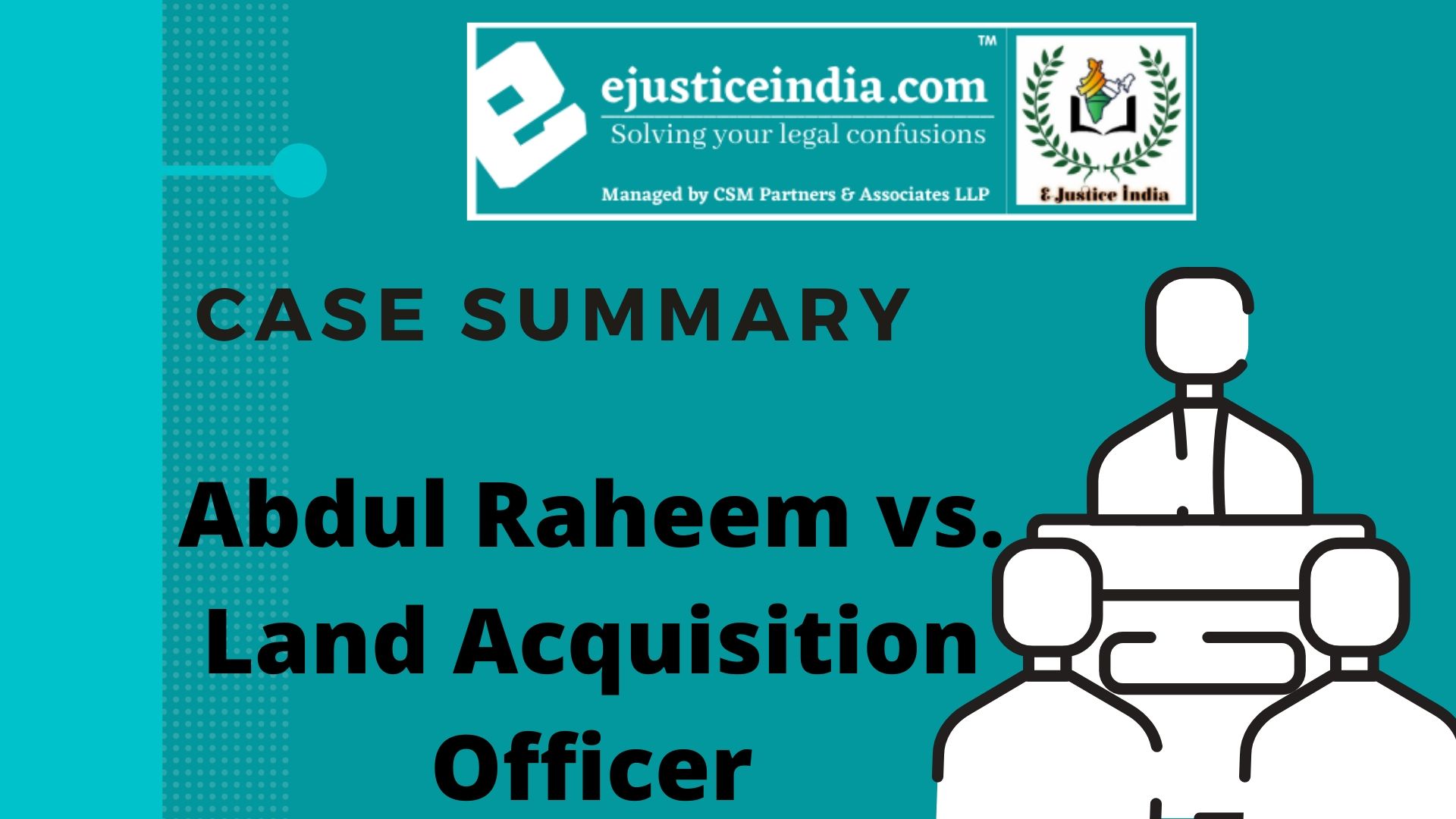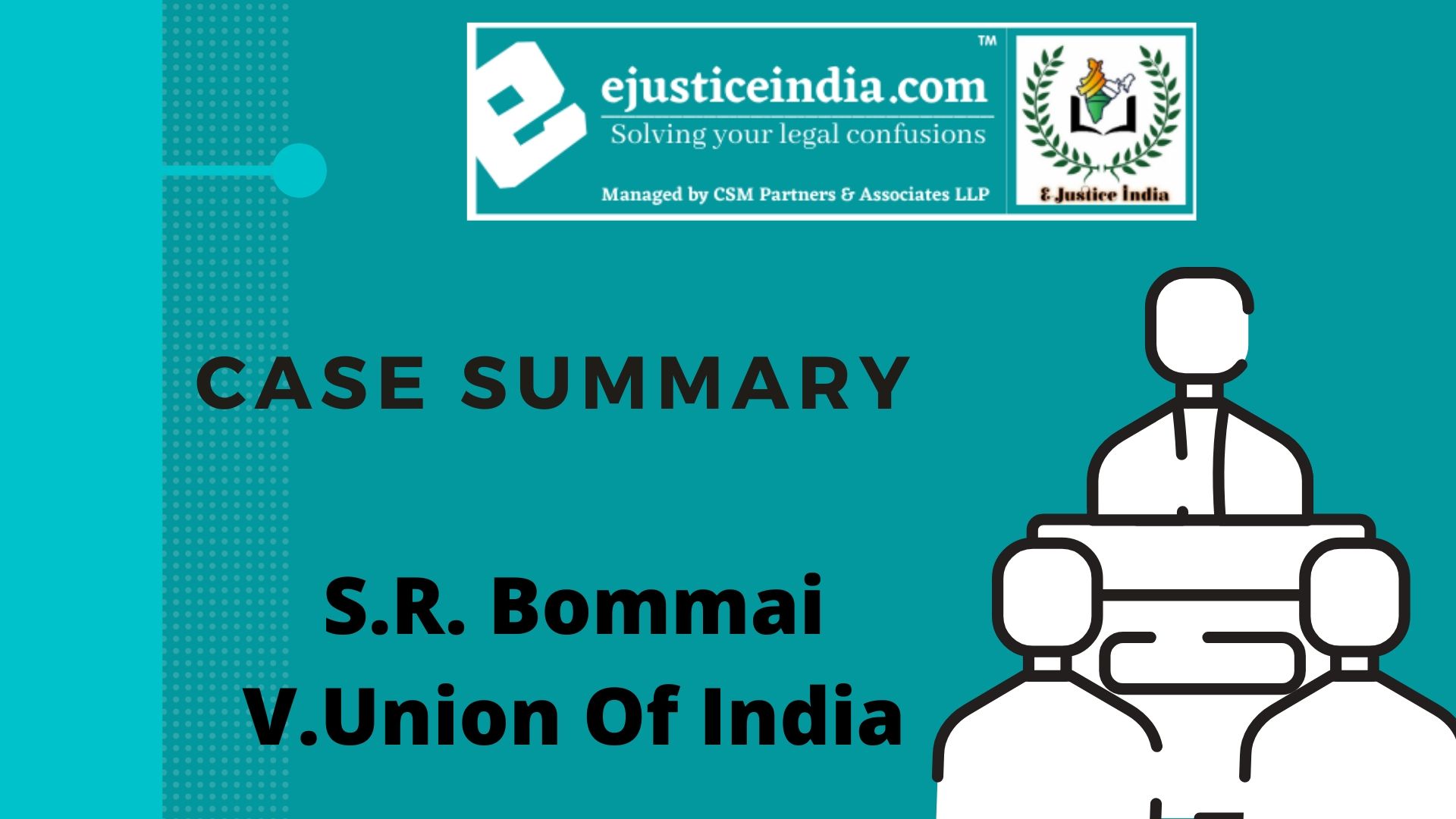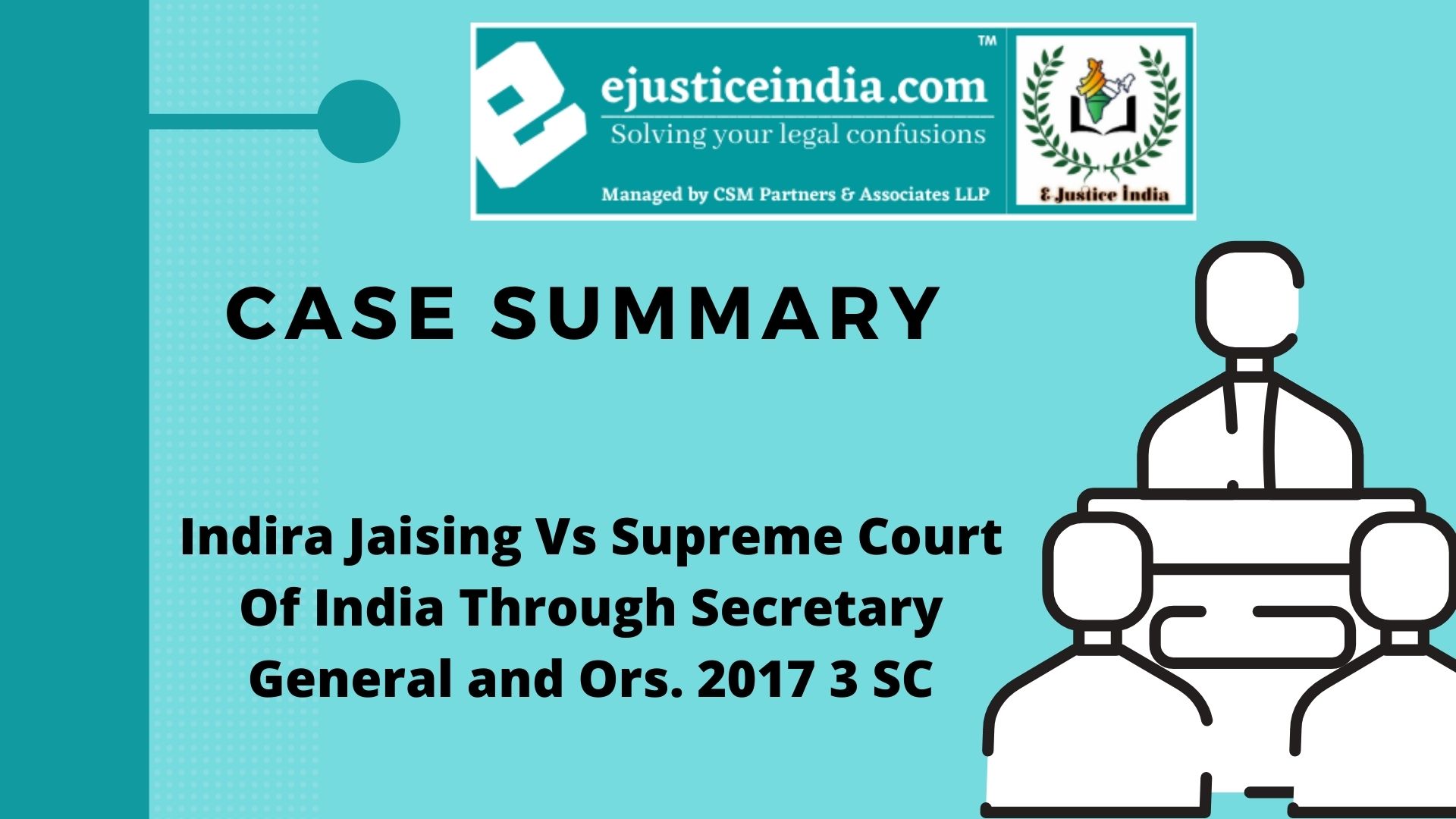NATIONAL LEGAL SERVICES AUTHORITY (NALSA) VS. UNION OF INDIA
Case Name : NATIONAL LEGAL SERVICES AUTHORITY (NALSA) VS. UNION OF INDIA
Author : Srishti
Introduction
The lives of human beings are full of intricacies, but LGBT face much more ordeal compared to other people. In today’s times, what is necessary is to comprehend the feelings of the LGBT community and also to grant them common human rights. But the world lowers its eyes and refuses a discussion over the granting the same to them and it is so miserable to see that such discrimination exists even in the 21st century.
Indian law, as a whole, only recognizes the paradigm of the binary genders of male and female, based on a person’s sex assigned at birth. Such law permits a gender system, including the laws relating to marriage, adoption, inheritance, succession and taxation, and welfare legislation. The most germane question with respect to the LGBT community is whether they are to be discriminated against by other human beings on merely being different, which does not give others the authority to ostracize one from society.
In fact, in July 2009, it was ruled by the Delhi High Court that consensual same-sex relations between adults in private could not be criminalized. Then in a recent judgment, the Supreme Court of India expressed its concerns over the mental trauma, emotional agony and pain of the members of the transgender community, as well as ignorance and isolation of the community.
Facts of the case
The case concerns legal gender recognition of the transgenders. Whether the lack of legal measures to cater for the needs of persons not identifying clearly as male or female contradicts the Constitution is the major issue of this case. Pre-existing Indian law lacked any provision with regard to the rights of transgender people and only recognised the binary genders of male and female.
Any provision with regard to the rights of transgender people, which advocates in India have also defined them as a ‘third gender”. The gender of a person is assigned at birth and would determine his or her rights in relation to marriage, adoption, inheritance, succession, taxation and welfare. Thence, due to the absence of any specific legislation protecting the LGBTQ community, the community faced discrimination in various areas of life.
Issues raised
Firstly, the non-recognition of their gender identity is a violation of their fundamental rights? Secondly, whether TGs have this freedom to choose their gender? And lastly, whether the state should make such legislations to protect the rights of TG’s?
Arguments of the petitioners
At the first place, it was contended by the petitioners that every TG person would have this option to choose their sex and determine their own identity. It was submitted by the counsel that, since the TG are neither male nor female, nor given the status of the third gender, hey are being deprived of many rights and privileges which are being enjoyed by the other members of the society as a citizen.
They are restricted of all the social and cultural participations and hence they are restricted the access to education, health care and public places. All these restrictions deprive them of the constitutional guarantee of equality before law and the equal protection of laws.
Secondly, it was also highlighted by the counsel of the petitioners that the state cannot discriminate TG’S on the ground of gender which violates the Article 14, 16 and 21 of the Indian constitution. It was also submitted that the non-recognition of the gender identity of the TG community violates the Fundamental Rights guaranteed to them by the Indian constitution, who are the citizens of this country.
Thirdly, it was also submitted by the learned counsel that the TG’s should be declared as a socially and educationally backward class of citizens and all the benefits available must be provided to them accordingly.
Lastly, it is the duty of the state to protect the TG community by bringing into force such legislation as required as the petitioner herself submitted that she herself had faced many major discriminations in her life along with that the society as well the state has treated them like criminals.
Arguments by the respondent
It was contended by the respondents, on the other hand that, an “Expert Committee on Issues Relating to Transgenders” has been set up by the state government. And it was further stated by the learned counsel that the petitioner’s views would be sought as a part of the process. It was also argued by various states and union territories that they have taken significant steps to improve the conditions and status of the TG community.
Judgement of the Hon’ble Court
The Hon’ble Court exhaustively referred to the various judicial pronouncements and legislations on the international arena in order to highlight the fact that the recognitions of ‘Sex Identity Gender’ of the persons and “guarantee to equality and no-discrimination” on the ground of gender identity, therefore, be applied in India as well.
The court was really concerned with the grievances of the members of the TG’s community who seek legal declaration of their gender identity than the one assigned to them. Their prayers are that non-recognition of their gender identity violates Article 14 and 21 of the constitution of India.
It was found by the Hon’ble Court that the petitioners had faced various discrimination throughout her life because of her gender identity and it has been clear that the complete non-recognition of the identity of TG persons by the state has resulted in the violation of the most of the Fundamental Rights of the Indian Constitution as guaranteed to them.
Therefore, it has been declared by the Hon’ble Court that – the Hijras, Eunuchs, apart from the binary gender be treated as ‘third gender’. This must be done for the purpose of safeguarding their rights under Part III of the Indian Constitution and the laws made by the Parliament and the Legislature of the States.
Secondly, the court upheld the TG persons’ right to declare their self-identified gender and the Centre and the State Governments are directed to grant legal recognition of their gender identity such as male, female or third gender.
Thirdly, it has been directed by the Centre and the State Government to take necessary steps to treat them as socially and educationally backward classes of citizens. Also, they are directed to extend all kinds of reservation in cases of admission in educational institutions and for public appointments.
Fourthly, the Centre and State has been directed by the Hon’ble Court to establish special HIV cells for TG’s and proper measures must be taken to provide them medical care in the hospitals. A direction to provide the TG community with separate toilets and other facilities has also been made by the Hon’ble Court.
Fifthly, necessary steps must be taken by the State and the Centre for framing various social welfare schemes for the betterment of the LG community, along with that, necessary steps must be taken by the Centre and the State Governments to create publiuc awareness so that they will feel that they are also a part and parcel of the social life and be not treated as untouchables.
References
- https://www.bricslawjournal.com/jour/article/view/48
- https://lawtimesjournal.in/nlsa-vs-union-of-india/
- https://www.equalrightstrust.org/ertdocumentbank/NLSA%20v%20Union%20of%20India.pdf
- https://www.globalhealthrights.org/blog/landmark-case-national-legal-services-v-union-of-india-ors-nalsa-2014/
- https://blog.ipleaders.in/national-legal-services-authority-vs-union-of-india-case-study/


